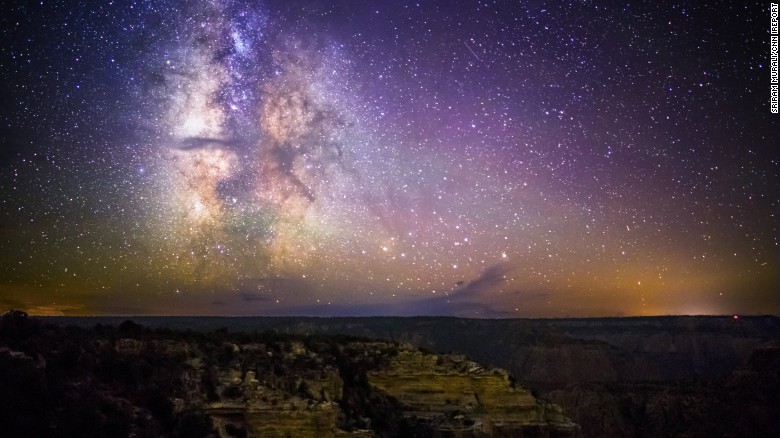
 1 of 1
1 of 1
- Goose
- Cogito ergo sum
 Offline
Offline 
- Registered: 1/29/2015
- Posts: 13,427
One-third of the world cannot see the Milky Way -- why that matters
One-third of the world cannot see the Milky Way -- why that matters
(CNN) If you look up at the evening sky, there's a good chance you will not be able to see what your grandmother saw when she was a little girl.
That's because we're enshrouded in an artificial haze of light that is blocking the night sky, a phenomenon scientists call light pollution.
Scientists believe one-third of humanity cannot view the Milky Way — this includes 80% of Americans and 60% of Europeans because city lights are creating fogs of light pollution, according to a new study that published Friday in the journal of Science Advances.
An international team of scientists created a world atlas of artificial sky luminance that details how light pollution is permeating our planet. This light is obscuring our vision of the stars, celestial events and the Milky Way — the galaxy that contains our solar system.
Although there are a few patches of pristine dark sky still left in the world, 83% of the world's population and more than 99% of the U.S. and European populations live under the bright glow of light pollution.
"This is a huge cultural loss with unforeseeable consequences in the future generations," scientist Fabio Falchi, one of the authors of the study, says. "Pristine night skies are a precious merchandise."
,,,,,,,,,,,,,,,,,,,,,,
The dangers of too much light
The findings shows that light pollution is a global issue, and many countries are affected by a fog of artificial light. But light pollution doesn't just obscure our view of space.
This over-saturation can impact our culture, cause global ecological problems, pose public health issues and create wasteful energy spending, the researchers warn.
For instance, artificial light has a direct effect on human physiology and behavior. For instance, it can alter our circadian rhythm and affect production of some of our hormones, a 2007 medical study found. It can also disrupt our sleep cycle by suppressing melatonin creation and increasing cortisol levels — a hormone that is linked to stress.
Researchers found that people living in urban environments were the most affected by light pollution, but what is troubling is that the glow of city lights is creeping into unpopulated areas too.
This is important because artificial lights can negatively affect wildlife. For example, streetlights near shorelines can cause baby turtles who have just hatched to become disoriented and wander inland instead of into the ocean, causing them to die because of dehydration or exposure to predators, according to research by the Sea Turtle Conservancy.
So why has our world been overtaken by light pollution?
"Light pollution is also a consequence of the belief that artificial light increases safety on roads and prevents crimes, but this belief is not based on scientific evidence," the study states.
We live in a time in which decent and otherwise sensible people are surrendering too easily to the hectoring of morons or extremists.
 1 of 1
1 of 1